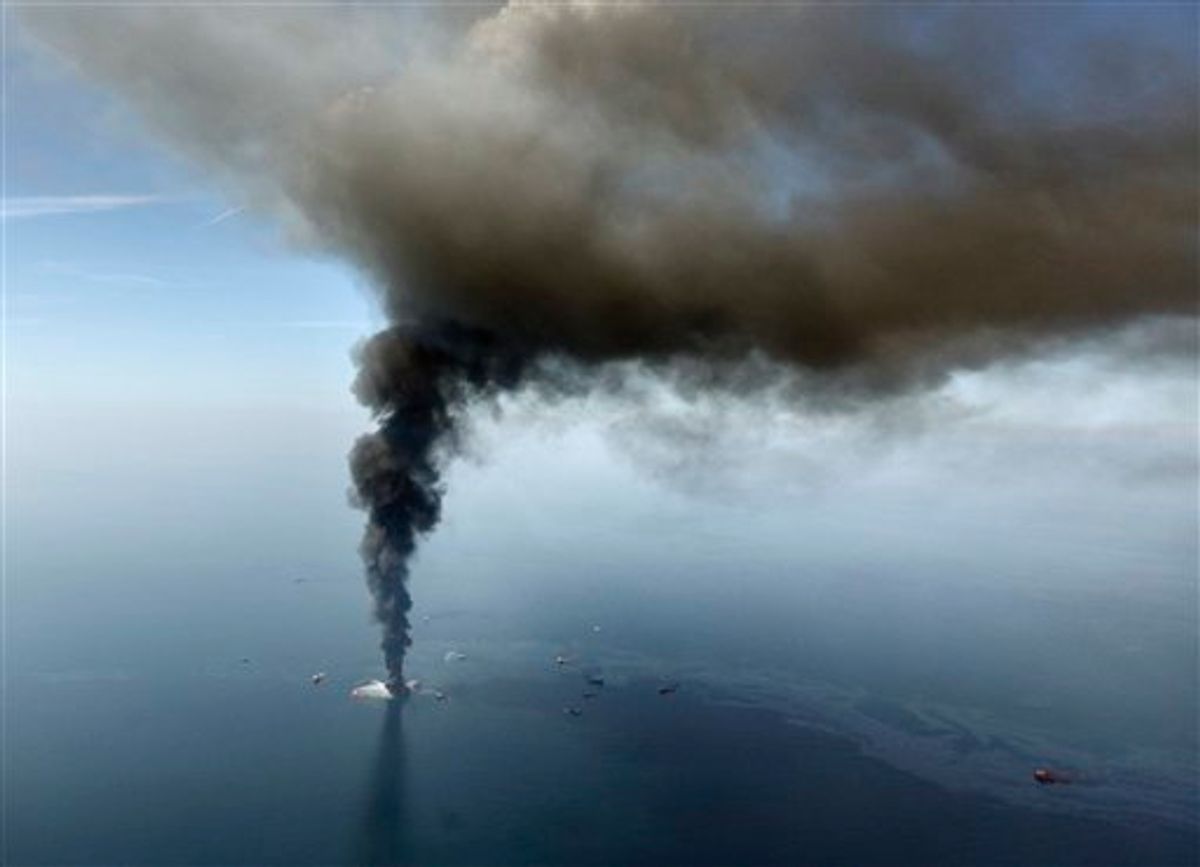In the immediate aftermath of the Deepwater Horizon rig explosion -- which killed 11 workers and spawned an oil slick the size of Kansas -- it seemed clear that the event would be remembered as perhaps the worst environmental calamity in U.S. history. Now, one year later, arguments for the magnitude of the disaster are less self-evident.
The BP oil spill flushed upwards of 4 million barrels of crude into the Gulf of Mexico between April and July, 2010. But by August, the once-vast sheen of rust-colored muck had mostly disappeared from the ocean's surface. Official reports claim that marine life is returning to normal.
According to an optimistic Weekly Standard:
If there was an unexpected hero to the story, it was Mother Nature...The Gulf oil spill is, indeed, much less of a calamity than most people expected. Said one environmental scientist in late July: "Mother Nature is doing what she is supposed to be doing and we're losing most of [the spilled oil] to microbial degradation in the open ocean."
However, to judge the effects of the spill as negligible would be to overlook the very real, if subtle, impact of the spill on the coastal ecosystem. University of Georgia marine scientist Samantha Joy has openly, and often, criticized the Obama administration for downplaying the impact of the spill. In February, Joy released a report showing that much of the Gulf floor was still dead and coated in sludge. Likewise, the National Oceanic and Atmospheric Agency has said that a full recovery is still likely a ways off, and a quarter of the oil released in the spill "remains unaccounted for."
According to The Guardian:
60 miles of the coastline remain oiled. Tar mats continue to wash up on beaches in Louisiana, Mississippi, Alabama and the Florida Panhandle. And although Gulf waters have reopened to fishing, many oyster beds were wiped out when state authorities flushed fresh water into the Gulf in the hopes of rolling back the oil. At a public meeting last month in Biloxi, Mississippi, fishermen said they were hauling up nets full of oil with their shrimp.
It remains unclear what the long-term impact of the oil spill might be. But, as the Obama administration looks to resume drilling in the Gulf, debate over the merits of oil and natural gas exploration off the U.S. coastline is likely to continue for some time.

Shares